Featured
 The Meaning of African American Studies. By Keeanga-Yamahtta-Taylor / The New Yorker
The Meaning of African American Studies. By Keeanga-Yamahtta-Taylor / The New Yorker
John Henrik Clarke (born John Henry Clark; January 1, 1915 – July 16, 1998)[1] was an African-American historian, professor, and pioneer in the creation of Pan-African and Africana studies and professional institutions in academia starting in the late 1960s.[2]
On Wednesday, February 1st, the first day of Black History Month, the College Board released its long-awaited curriculum for a new Advanced Placement class in African American studies. Two weeks earlier, the Florida Department of Education had rejected the course, claiming that it “lacks educational value and is contrary to Florida law.”
On Wednesday evening, I spoke to Robin D. G. Kelley, a professor of history at U.C.L.A. and one of the authors whose work was removed from the revised course. (My work was listed as secondary reading in the pilot curriculum; it has also been removed.) In our conversation, which has been edited for length and clarity, we discussed the history of African American studies, its connection to political struggle, and the consequences of the College Board’s actions. Read more
Related: Ron DeSantis Battles the African American A.P. Course—and History. By Jelani Cobb / The New Yorker
Related: What’s really behind Florida’s attack on African American Studies. By Leslie Kay Jones / CNN
Related: Erasing Black History Is Not the Role of the College Board. By Mara Gay / NYT
Political / Social
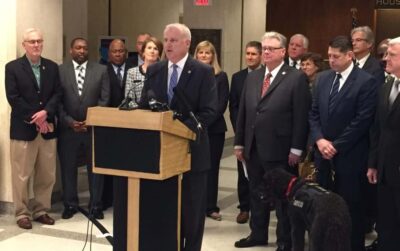 Outrage follows Florida college presidents’ statement on CRT. By Sara Weissman / Inside Higher Ed.
Outrage follows Florida college presidents’ statement on CRT. By Sara Weissman / Inside Higher Ed.
Florida College System presidents signed a statement promising not to support any effort that “compels belief” in critical race theory on their campuses. That prompted a deluge of criticism and, in some quarters, a little sympathy.
Scholars in Florida are angry, disappointed and divided over a recent joint statement, signed by Florida College System presidents, promising to “not fund or support any institutional practice, policy, or academic requirement that compels belief in critical race theory or related concepts.” The presidents, who released the statement last month, represent 28 state colleges in the Florida College System, including those that predominantly offer two-year degrees and workforce training programs. Read more
 The complex simplicity of Black cops and white supremacy. By Chauncey Devega / Salon
The complex simplicity of Black cops and white supremacy. By Chauncey Devega / Salon
The new-age lynching video of Tyre Nichols brings to bear an old-school dilemma
In the case of Tyre Nichols, much discussion is centered upon the “discovery” that Black police can be agents of white supremacy as they harass, brutalize, and kill other Black people. The public displays of “shock” and “surprise” upon release of the footage should serve as an indictment of America’s broken educational system. After all, James Baldwin said the following about Black police officers and their brutality against the Black community in his 1985 book “The Evidence of Things Not Seen”: Black policemen were another matter. We used to say, “If you must call a policeman” — for we hardly ever did — “for God’s sake, try to make sure it’s a White one.” Read more
Related: Sixth Memphis police officer fired after death of Tyre Nichols. CBS News
Related: Watch “Rev. Al Sharpton delivers the eulogy at Tyre Nichols’ funeral | ABC News” on YouTube
 Black caucus presses Biden to use the bully pulpit to push for police reform. By Eugene Daniels / Politico
Black caucus presses Biden to use the bully pulpit to push for police reform. By Eugene Daniels / Politico
“The president has unique powers in the office of the presidency. He’s committed to this issue,” said Rep. Steven Horsford. | Amanda Andrade-Rhoades/AP Photo
When Rep. Steven Horsford heads to the White House to meet with President Joe Biden this week, he will bring a message directly from the family of Tyre Nichols: Act now. “They want action,” the Nevada Democrat and Congressional Black Caucus chair said of his conversation with Nichols’ parents. “The action is legislative action; that’s here in Congress and at the state and local level, they want executive actions that still can be taken by the president and his administration.” Read more
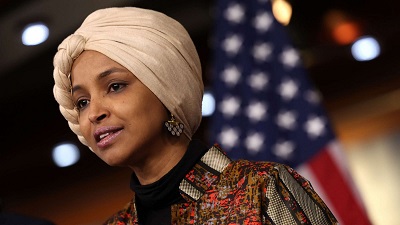 Republicans Remove Ilhan Omar From House Foreign Affairs Committee. By Arthur Delaney / HuffPost
Republicans Remove Ilhan Omar From House Foreign Affairs Committee. By Arthur Delaney / HuffPost
The vote is payback for Democrats booting Republican Reps. Marjorie Taylor Greene and Paul Gosar from committees in 2021.
House Speaker Kevin McCarthy (R-Calif.) has fulfilled his vow to remove Rep. Ilhan Omar (D-Minn.) from the House Foreign Affairs Committee. The House voted 218 to 211 Thursday along mostly partisan lines for a resolution condemning Omar’s past statements about Israel and disallowing her from serving on the foreign affairs committee. Read more .
Related: The GOP Attack on Ilhan Omar Trivializes Antisemitism. By Jonathan Chait / NY Mag
 She Took On Atlanta’s Gangs. Now She May Be Coming for Trump. By Mark Binelli / NYT
She Took On Atlanta’s Gangs. Now She May Be Coming for Trump. By Mark Binelli / NYT
Fani Willis’s aggressive tactics have sparked criticism — and won over voters. What do they tell us about how she might prosecute the former president?
When I visited her office late last year, Willis sat behind a large desk and indicated that I should take a seat on a couch about 10 feet away. Jeff DiSantis, her media-relations chief, sat in a corner, wearing cowboy boots and rarely glancing up from his laptop. Gov. Brian Kemp had just testified before the special grand jury that morning; if not for the rain, he might have walked over from his office in the Capitol building, only blocks away. Everyone I spoke with in Willis’s office referred to her as Madam D.A., and she faced me with her arms crossed and an apprising formality, the sort of person more used to asking the questions than answering them. Read more
 The city left behind in Mississippi’s welfare scandal. By Matenzie Johnson / Andscape
The city left behind in Mississippi’s welfare scandal. By Matenzie Johnson / Andscape
Brett Favre’s ventures got millions. Who didn’t? Hattiesburg’s Black community.
For at least three decades, the state has systematically withheld life-changing money and opportunity from poor and Black people, the type of money that pales in comparison with a few million dollars for a volleyball arena. The entire government bummock has likely kept millions of dollars out of the pockets of its poorest residents, further amplifying the poverty and affliction that has ravaged what’s called the poorest state in the country. Read more
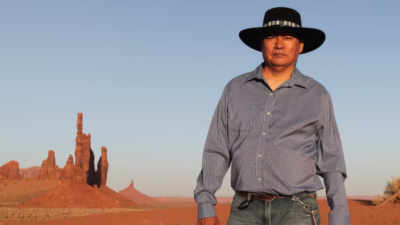 Native Americans have experienced a dramatic decline in life expectancy during the COVID-19 pandemic – but the drop has been in the making for generations. By Allison Kelliher / The Conversation
Native Americans have experienced a dramatic decline in life expectancy during the COVID-19 pandemic – but the drop has been in the making for generations. By Allison Kelliher / The Conversation
Six and one-half years.
That’s the decline in life expectancy that the COVID-19 pandemic wrought upon American Indians and Alaska Natives, based on an August 2022 report from the National Center for Health Statistics. This astounding figure translates to an overall drop in average living years from 71.8 years in 2019 to 65.2 by the end of 2021. Read more
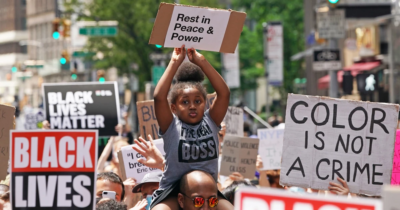 Study: Racial disparities can affect brain development in Black children. By Claretta Bellamy / NBC News
Study: Racial disparities can affect brain development in Black children. By Claretta Bellamy / NBC News
In the American Journal of Psychiatry study, Black children showed lower amygdala, hippocampus and gray matter volumes compared with white children.
Structural racism creates barriers in housing, employment and economic opportunity for Black people and other people of color. Now, a new study has found it can also have a harmful impact on children’s brain development. The study, published Wednesday by the American Journal of Psychiatry, found that Black children are disproportionately exposed to adversity in early life, which may contribute to race-related differences in brain structures as compared to white children. Read more
Related: Air Pollution and its Impact on Black Communities, Explained. By Adam Mahoney / Capital B
 Ida B. Wells Society relocates from UNC-Chapel Hill to Morehouse College. By Joe Killian / The Pulse
Ida B. Wells Society relocates from UNC-Chapel Hill to Morehouse College. By Joe Killian / The Pulse
“I am very excited to announce that Morehouse College will be the new home of the Ida B. Wells Society,” Hannah-Jones said in a statement released by Morehouse. “This partnership helps our young organization settle more deeply into our mission, which is to increase the number of investigative reporters of color.
The society, named for the pioneering Black investigative journalist, is dedicated to increasing and retaining reporters and editors of color in the field of investigative reporting and promoting diverse voices in news organizations. It has been headquartered at UNC-Chapel Hill since the fall of 2019. It was originally based at City University of New York’s Newmark School of Journalism before shifting to the Shorenstein Center at Harvard’s Kennedy School of Government in 2018 and UNC-Chapel Hill a year later. Read more
Ethics / Morality / Religion
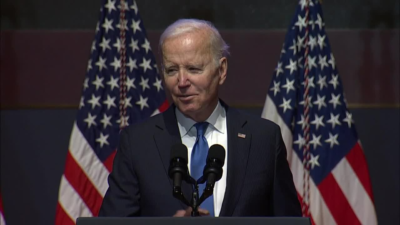 Biden tells dueling prayer breakfasts that ‘diversity is one of our greatest strengths.’ By Adelle M. Banks / Religion News
Biden tells dueling prayer breakfasts that ‘diversity is one of our greatest strengths.’ By Adelle M. Banks / Religion News
Biden’s remarks occurred on the day when there were two events instead of one to mark the tradition of prayer gatherings of Congress and the U.S. president.
Biden used the topic of faith to comment on the diversity of Congress, pointing out that in addition to including people of different faiths and no faith it is also the most ethnically and racially diverse body in its history. “Differences express infinite creativity of God, who is able to see his reflection in countless ways in different people,” the president said. “It’s also an expression of American conviction that our diversity is one of our greatest strengths.” Read more
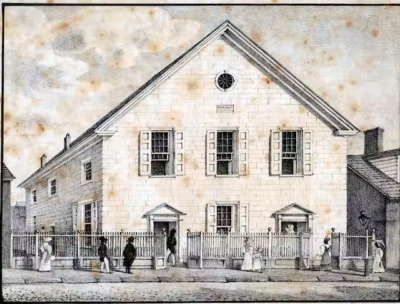 A brief history of the Black church’s diversity, and its vital role in American political history. By Jason Oliver Evans / The Conversation
A brief history of the Black church’s diversity, and its vital role in American political history. By Jason Oliver Evans / The Conversation
With religious affiliation on the decline, continuing racism and increasing income inequality, some scholars and activists are soul-searching about the Black church’s role in today’s United States.
The Black church has played a vital role in the shaping of American political history. African American churches provided spaces for not only spiritual formation but also political activism. Black churches were spaces where slave abolitionism was envisioned, and insurrections were planned. Black preachers such as Denmark Vesey and Nat Turner were actively involved in attempted and successful slave insurrections in the South. Despite the rise of the religiously unaffiliated or “Nones” within the African American community, the Black church, I believe, continues to be an influential institution. Read more
 Professor digs into history of Mercy sister’s boarding school for Native children. By Joyce Meyer / Global Sisters Report
Professor digs into history of Mercy sister’s boarding school for Native children. By Joyce Meyer / Global Sisters Report
A marker erected by the Minnesota Historical Society marks the site of the dormitory of the former Morris Industrial School for Indians. (Courtesy of Elizabethada Wright)
The boarding school system for Native American children as we know it dates from the 1880s, when there developed a drive to curtail culture of Indigenous people. Although different U.S. presidents at this time may have had somewhat different attitudes toward the Native Americans, some more humane than others, all agreed that they had to be integrated into the dominant white culture. Churches fell into the same mindset, and the Native American culture faced serious threats. Indigenous nations today are working to revive their cultures as much as possible. Read more
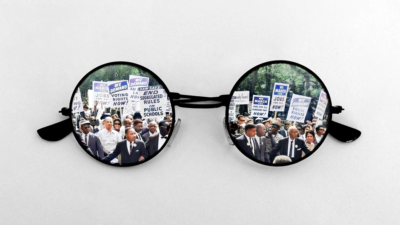 Seeing Color Matters in Black History. By Terence Lester / Christianity Today
Seeing Color Matters in Black History. By Terence Lester / Christianity Today
This month, white Christians can love their Black siblings in the church by seeing their struggles in context.
When I was a college student, Black History Month came around and my Bible college at the time did nothing. There were no school-sponsored events or presentations on this topic, and professors avoided the topic altogether. I sat in class, shifting uneasily between anger and sadness. I could not understand how a topic so important in one culture could be so completely ignored and buried in another. Confused, I asked one of my white friends to explain why nobody acknowledged Black History Month. His response was like that of his colleagues. “I don’t see color,” he replied, delivering this line as if it were a mic-drop moment. Read more
Historical / Cultural
 Slavery in Appalachia: The untold stories of Black Appalachian history. By Janay Reece / Wdbj7
Slavery in Appalachia: The untold stories of Black Appalachian history. By Janay Reece / Wdbj7
The topic of slavery in Appalachia is a subject that is hard to discuss, and not well known. Listen to this story in an episode of the Hometown Stories podcast:
Some people believe slavery did not exist in the Appalachian or Blue Ridge Mountains. However, from the earliest years of European settlement, slavery has been part of the fabric of the region. The New River Valley was no exception. According to local historians, the number of enslaved people in the area grew in the years leading to the Civil War. Read and listen here
 The Rosa Parks of D.C. By David A. Taylore / Wash Post
The Rosa Parks of D.C. By David A. Taylore / Wash Post
Half a century before the civil rights movement, Barbara Pope boarded a train and challenged Virginia’s Jim Crow law. Soon, her story was mostly forgotten.
In fact, Barbara Pope, a D.C. native, ranks among the most stunning forgotten American lives. She was, in addition to being a high school teacher, an author of fiction about social change at the turn of the 20th century, and her literary voice was celebrated on the international stage by no less than W.E.B. Du Bois. Read more
 The painful, cutting and brilliant letters Black people wrote to their former enslavers. By Gillian Brodkwell / Wash Post
The painful, cutting and brilliant letters Black people wrote to their former enslavers. By Gillian Brodkwell / Wash Post
Some are exquisite condemnations from learned and accomplished men who escaped their enslavement. Some are brief queries, shots in the dark, dictated by illiterate women. One is brilliant sarcasm, humorously calculating and requesting back wages.
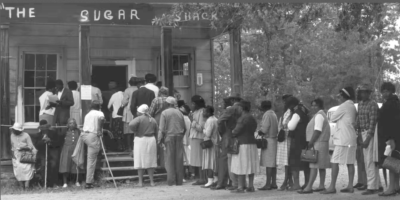 Civil rights legislation sparked powerful backlash that’s still shaping American politics. By Julian Maxwell Hayter / The Conversation
Civil rights legislation sparked powerful backlash that’s still shaping American politics. By Julian Maxwell Hayter / The Conversation
For nearly 60 years, conservatives have been trying to gut the Voting Rights Act of 1965, the crowning achievement of the civil rights movement. As a scholar of American voting rights, I believe their long game is finally bearing fruit.
The 2013 U.S. Supreme Court decision in Shelby County v. Holder seemed to be the death knell for the Voting Rights Act. In that case, the court struck down a portion of the Voting Rights Act that supervised elections in areas with a history of disenfranchisement. The Supreme Court is currently considering a case, Merrill v. Milligan, that might gut what remains of the act after Shelby. Read more
 How We Construct and Reconstruct Race. By Jamelle Bouie / NYT
How We Construct and Reconstruct Race. By Jamelle Bouie / NYT
People gather and pray to honor the life of Tyre Nichols at the street corner where he was beaten by police officers in Memphis.Credit…Desiree Rios/The New York Times
Many people understand that race is “socially constructed.” Racial categories do not reflect biology as much as they are a product of historical contingencies and material realities. The idea of a singular “white” race comprising the whole of Europe is, for example, more or less the product of centuries of trans-Atlantic slavery, colonialism, imperialism and capitalist accumulation. It is an ideology, not a part of the natural world. Read more
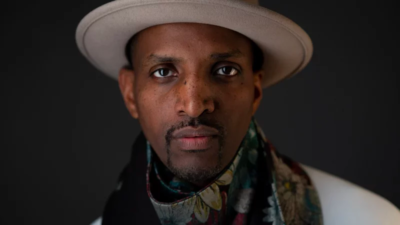 Poetry finally has its own Grammy category – mostly thanks to J. Ivy, nominee. By Mandalit Del Barco / NPR
Poetry finally has its own Grammy category – mostly thanks to J. Ivy, nominee. By Mandalit Del Barco / NPR
For decades, the Grammys’ spoken-word awards have gone to audio books, narrated by people like Barack and Michelle Obama, Carrie Fisher, Stephen Colbert and others – “Best Audio Book, Narration & Storytelling Recording” is the official title for the statue. But this year, poets will have their own: Best Spoken Word Poetry Album.
The Chicago-born poet J. Ivy helped create the new category and is one of five contenders for the award, though he didn’t nominate himself. As a national trustee for the Recording Academy, Ivy says he pushed for the Grammys to honor the form. “A poet will be bringing home a Grammy,” he tells NPR, “and it’ll be the first poet since Maya Angelou.” Read more
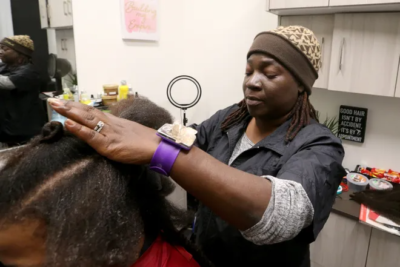 For Black women, hair is tied up with culture, identity and much more. By Alesia I. Redding / South Bend Tribune
For Black women, hair is tied up with culture, identity and much more. By Alesia I. Redding / South Bend Tribune
For a Black woman, her hair can be her crowning glory, an expression of pride in her appearance. But it can also be something more, something deeper — something rooted in culture and a complicated history.
So, if you ask a Black woman about her hair, be prepared to hear about more than dreadlocks and perms. She might tell you about beauty standards, about workplace culture, about the pressure to assimilate. She might inform you that historically, so-called “good hair,” i.e., straight hair, has been prized within the Black community. (Does that mean that Black hair in its natural, tightly curled state is “bad”?). She might share memories of not swimming (or learning to swim) because she couldn’t risk getting her (straightened) hair wet. Read more
Sports
 Fisk University’s Inspiring Women’s Gymnastics Team Will Be The Focus Of A New Docuseries. By Jazmin Tolliver / HuffPost
Fisk University’s Inspiring Women’s Gymnastics Team Will Be The Focus Of A New Docuseries. By Jazmin Tolliver / HuffPost
The HBCU’s newly formed Bulldogs team recently debuted at the NCAA level in Las Vegas.
Fisk University’s groundbreaking women’s gymnastics team is gearing up to share its journey on the big screen. The 15-player team leaped their way into a major triumph as the first gymnastics team from a historically Black college or university (HBCU) to compete at the NCAA level earlier this year. Tentatively titled “Flipped,” the series will “follow college gymnastics’ only all BIPOC team as they navigate the pressures of their first season while challenging the stereotypes and norms in women’s athletics,” according to a press release from the university. Read more
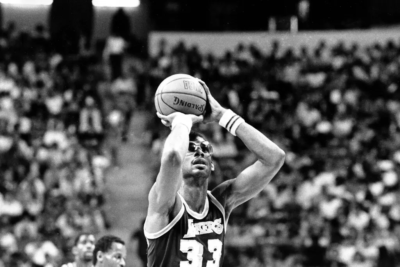 Kareem Abdul-Jabbar Was the ‘Best Weapon in Basketball.’ By Tania Ganguli and
Kareem Abdul-Jabbar Was the ‘Best Weapon in Basketball.’ By Tania Ganguli and
Everyone knew he was close to surpassing Wilt Chamberlain’s career scoring record in 1984. Opponents still couldn’t stop him.
For 15 seasons, first with the Milwaukee Bucks and later as the Lakers’ impassive captain, Abdul-Jabbar had been drop-stepping and sky-hooking his way toward history — and no one, not even Eaton, a 7-foot-4 shot-blocking maestro who died in 2021, could prevent any of it from happening. Read more
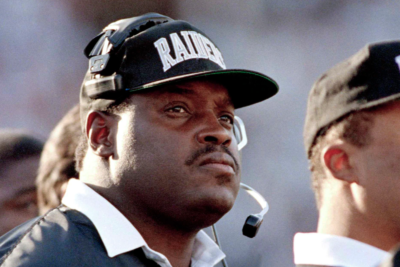 The modern NFL didn’t have a Black head coach until 1989. Here’s his story. By Frederic J. Frommer / Wash Post
The modern NFL didn’t have a Black head coach until 1989. Here’s his story. By Frederic J. Frommer / Wash Post
By the time Art Shell became the first Black head coach in modern NFL history, there had already been 18 Black head coaches in the NBA and four Black baseball managers.
In 1989, two months after his induction into the Pro Football Hall of Fame as a player, Shell took over the head coaching job of the Los Angeles Raiders. He was the NFL’s first Black head coach since the league’s early days in the 1920s, when Fritz Pollard was player-coach for the Hammond (Ind.) Pros. (At the time, the upstart NFL was mostly limited to major and not-so-major Midwestern cities.) Read more
Site Information
Articles appearing in the Digest are archived on our home page. And at the top of this page register your email to receive notification of new editions of Race Inquiry Digest.
Click here for earlier Digests. The site is searchable by name or topic. See “search” at the top of this page.
About Race Inquiry and Race Inquiry Digest. The Digest is published on Mondays and Thursdays.
Use the customized buttons below to share the Digest in an email, or post to your Facebook, Linkedin or Twitter accounts.